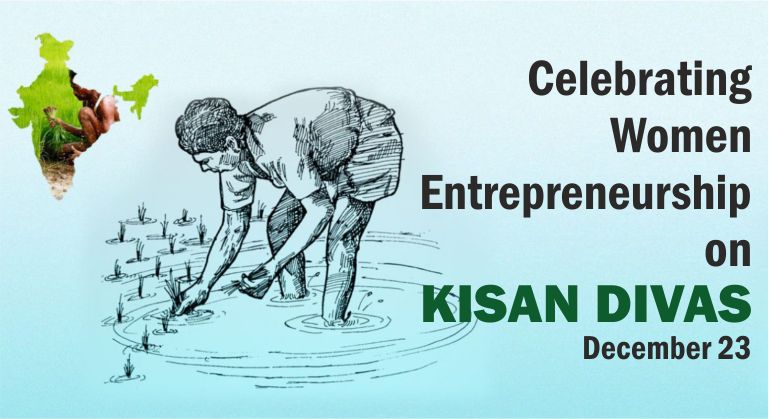On Kisan Divas, Sheatwork looks at how Indian women entrepreneurs can contribute towards building a sustainable environment in the rural areas
When a day is set aside to commemorate farmers in India, does it really do justice in celebrating the farmer community? In fact, a day has been identified as ‘Kisan Diwas’, which is celebrated every year to commemorate birth anniversary of the 5th Prime Minister of India, Shri Chaudhary Charan Singh. In 2001, the Government had decided to observe 23rd December every year as Kisan Diwas.
Kisan Diwas or National Farmers Day is observed across the country. Tracing back to the times of Shri Chaudhary Charan Singh, he was also a farmer’s leader, who introduced many policies to improve the lives of the Indian farmers. So, right from the beginning, it is celebrated by organising various programs, debates, seminars, quiz competitions, discussions, workshops, exhibitions, essays writing competitions and functions. These programmes for the farmers are organized at divisional, district and block levels.
Agriculture, is without a doubt, the largest livelihood provider in India, especially in the rural areas. So, the most important sector in the Indian economy is agriculture, which accounts for 18 per cent of India’s gross domestic product (GDP) and provides employment to 50% of the countries workforce. Sustainable agriculture, in terms of food security, rural employment, and environmentally sustainable technologies such as soil conservation, sustainable natural resource management and biodiversity protection, are essential for holistic rural development. Indian agriculture has witnessed a green revolution, but there is much more to be done.
Role of women in the ‘green’ revolution
With agriculture as the backbone of the Indian economy, it is seen that women play a vital role in building this economy. Over the years, the key role of women in agricultural development has been realised; and also their vital contribution in the field of agriculture, food security, horticulture, processing, nutrition, sericulture, fisheries, and other allied sectors.
In India as 70 percent women are farmers, so it’s the best measure to empower them, which can be possible through entrepreneurship in agriculture sector. Empowerment of women through “agripreneurship” will ultimately serve the purpose of gender equality.
Rural women’s entrepreneurship can contribute to economic growth in developing countries and clearly represents an untapped potential. Micro and small enterprises offer a number of particular advantages for rural women: flexible hours, location in or near women’s homes, ease of entry, and links with local markets. However, rural female entrepreneurs also face particular challenges entering new and lucrative markets and expanding their businesses. Cooperatives are a prominent form of sustainable enterprise for women in rural areas. When they adopt gender-sensitive practices, they can increase women’s empowerment, voice and representation in decision-making, provide a business network, enhance access to markets and services, and subsequently, facilitate economies of scale.
At the end, it seems that encouraging women entrepreneurs in the agriculture sector will do wonders to build a sustainable environment for the farmers’ universe, which is being faced by multiple challenges today.










